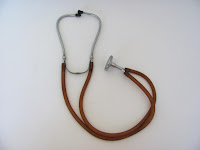An anachronism is a chronological inconsistency. If you know your subject, they jump out at you and often that will be it as far as your further enjoyment. The credibility of the story is lost and you may end up tossing the story aside. As a writer, especially a writer of historical works like western novels you have to protect yourself against this ailment. And indeed, ailment it is, since once you get used to letting them slip into your writing, you will tend to do it again and again.
Write about what you know
Every writer hears this at the start of their career. I certainly did, but I tended to misinterpret it. As a doctor I thought that it meant that I should write about medicine and surgery. If I wanted to write a crime novel then I should set it in a hospital, or have doctors as the main characters. The thing was that although I worked in medicine I certainly did not want to write solely about medicine. I wanted to write westerns, crime novels and historical stories for youngsters.
After several false starts and the usual rejections, surely the common coin of aspiring writers, it finally clicked with me. I didn't have to deal solely with the things I knew about, but I should use that knowledge in the story. So I wrote westerns and crime stories and used medical facts and descriptions in the tale, but not as the whole tale. I found that gave my writing a sense of authenticity. And I could then drip that authenticity into other areas of the story by good solid research.
And so, my advice is to put plumbing details in if you know about plumbing, or baking if you like to bake, or bungie-jumping, if you are so adventurous as to enjoy hurtling head downwards from tall buildings at great speed. you just t don't have to make it the whole point of the book or story. Think of it as the veneer of authenticity that makes the reader believe that you know your subject.
But check, whatever you do
Although I have a great interest in medical history, I still check if things are plausible in particular times. For example, I know that blood pressure was only starting to be appreciated at the end on the nineteenth century and that sphygmomanometers (blood pressure measuring machines) only started to be use in the early twentieth century. It is a mistake to have a frontier doctor use one in the 1870s. Similarly, a doctor before the Civil War would not use a binaural stethoscope, that is a stethoscope with two tubes. He would use a single tubal device, like the other doctors of the time.
Two tubes would be wrong
One tube would be right
Get your psychology right
We tend to use words like depression, as if they have always been used. Yet in the nineteenth century the label melancholia would be used more frequently. A doctor would not pronounce about a patent's mental state in terms of ego, for Sigmund Freud did not come up with his model of the ego, id and super-ego until 1923.
This was all very much in my mind when I started out writing a monthly blog for Western Fictioneers. The aim was to write posts that my fellow writers could use to get medical and surgical facts right in their books. Then after some writers asked about whether certain injures could be treated in a certain way, or whether a disease could be fatal, or other things like how long it would take to die of thirst in the desert, it was suggested that a collection of such posts could be a useful resource for western, romantic and historical novelists. The result was my latest book The Doctor's Bag- medicine and surgery of yesteryear. I hope that it will help the writer avoid medical anachronisms in their tales.
As for anachronisms about weapons, clothing, things to eat, well I am continually looking for other posts to keep me right.
Keith Souter is a part time doctor, medical journalist and novelist. He writes westerns as Clay More and crime as Keith Moray. He is the current vice-president of Western Fictioneers. His latest book The Doctor's Bag has just been published by Sundown Press.





This is an eternal challenge but thanks to the internet, sources or leads to sources are more available than ever. Wikipedia, Wikibooks, Wikiquotes, and Wikisource are good places to start the search because not only do the give a summary, but they usually include links to the websites of experts. Also, I rely on www.abebooks.com when I actually want to hold the reference book in my hand.
ReplyDeleteI agree, Sean, the internet has made research so much easier and there are so many excellent sites that you can use. It is still so easy to assume that certain things were done at times in the past, but with a little research you may find that they weren't done, or hadn't been invented. The thing is to ask yourself the question in the first place.
ReplyDeleteThis means the insured must pay for the cost of maintaining their equipment, and the insurance policy will provide no financial protection, until the policy deductible limit has been satisfied. mcalister's deli low carb
ReplyDelete